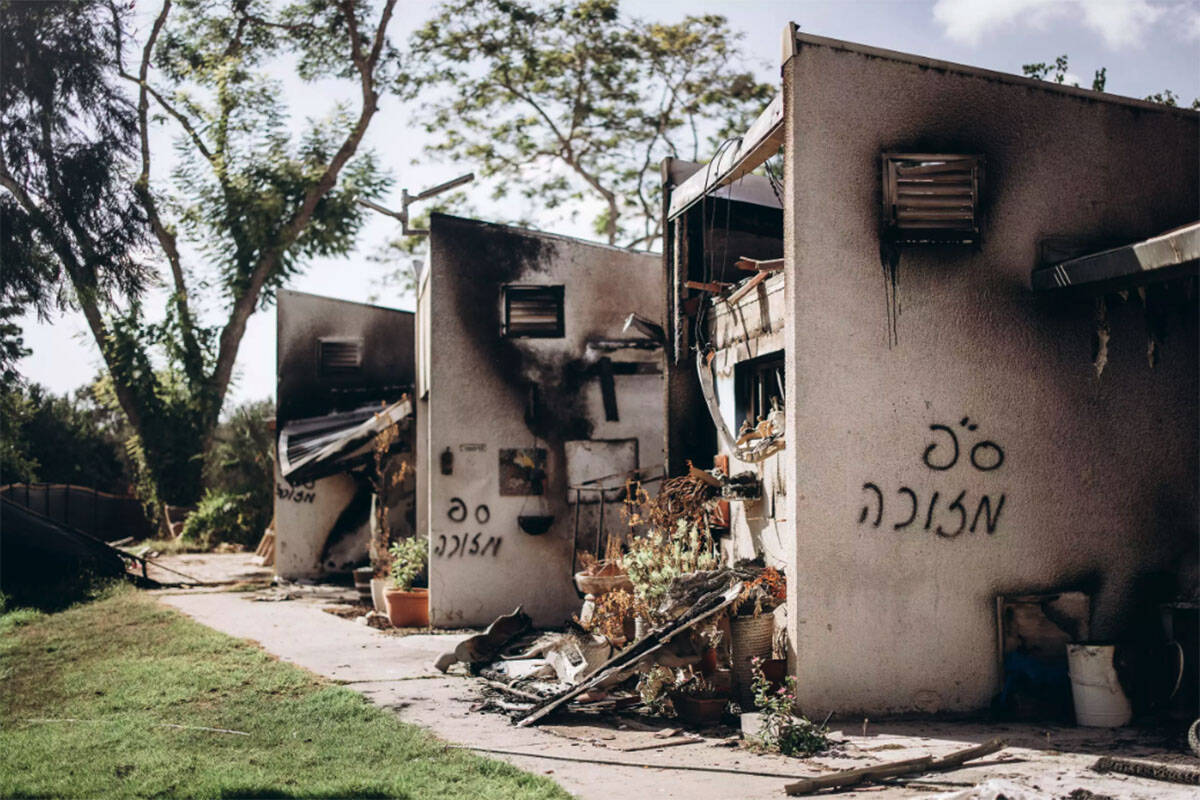Remembering Oct. 7, 2023: A journey through the inferno
On that morning, Simchat Torah, there was no time to explain, to think clearly, to analyze, or almost, I would say, to feel.
The phone rang, the call-up came, and my world turned upside down.
One moment I was a partner, a father, a son celebrating the holiday with my family. The next, I was a barefoot soldier, carrying only my personal weapon.
The system told me to wait, to sit quietly until the situation became clearer. But deep down, I knew I didn’t have that privilege. I chose to defy that order, a difficult decision that stays with me to this day, but one that saved me and the people I met later.
No one could give me a real picture of what was happening. I built it myself, from confused messages, from horrifying videos, and from the strong sense that this time everything was truly different.
Halfway down south, I pulled over to the side of the road. Sitting in a trembling car, my pulse racing, I held my phone and tried to record a farewell message for my children. I knew this was the day my life might end. It wasn’t a dramatic gesture but a simple truth: I didn’t know if I would see them again.
I wanted them to hear from me, in my own voice, that I loved them, that I was proud of them, that I was with them even if I never came back. The words stuck, the tears choked me, but in the end I managed to whisper something, enough to leave them a living memory.
We reached the Alumim Junction. Within just 150 meters around me lay 56 bodies, inside and outside the kibbutz. A heavy silence covered the area, broken only by the smell of burning and blood filling the air.
The sights, the sounds, the stories of the survivors and the dead in Be’eri are etched into me to this day. An entire community fought for its life, while I, in its midst, tried to gather the fragments.
I did not return the same person
Days later I came home. I was not the same person. In many ways, it was a return to life itself — after having come so close to death.
Miriam, my children, my home — everything looked different. Suddenly every breath, every glance, every hug became a great gift.
Two years have passed since then. The memory does not fade, the scars do not close. But out of the destruction also grows a mission: to tell the story so that no one can say, “We didn’t know.” So the world will understand, and so we can have at least one solace, that from the blood and the fire, the simple promise was reborn: to live.
That is how my book “My Brother” came to be. Writing allowed me to grasp once again the threads that had been torn apart, to give meaning to the pain and the shock, and to turn them into a living testimony and a call to life.
We established a leadership academy at Kibbutz Nir Oz as part of the rebuilding process. Nir Oz, which became a symbol of destruction, will become a symbol of courage and renewal.
The story of Nir Oz, we hope, will become the story of us all.

















